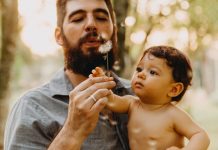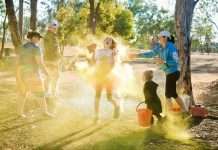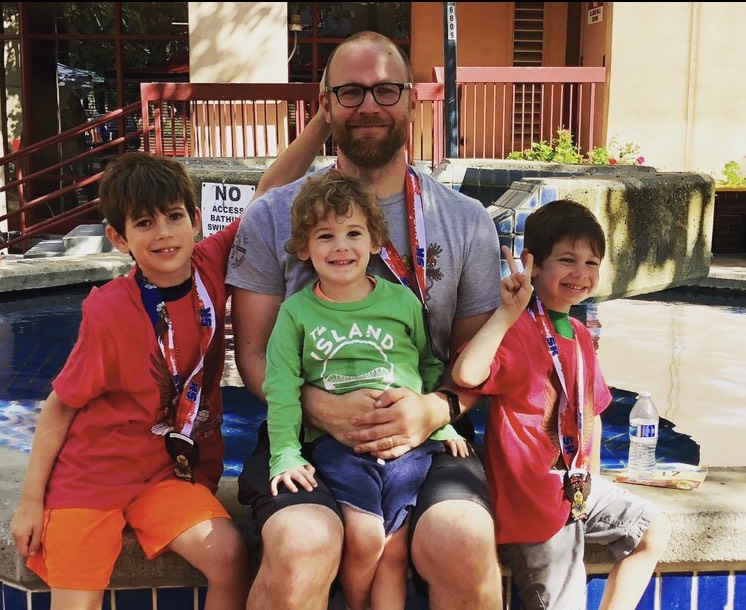
There’s a Jewish folktale about a man who lives in a tiny house with his large family. While he seems to understand on some level that he should be happy for what he has, he still bemoans the fact that his house is too small for his taste, his needs, his lifestyle.
He goes to the town wise woman who tells him first to bring a chicken into his home and then increasingly larger animals—a goat, cow, horse, etc.—until, finally, voila. She tells him to remove the animals. He is left with what he had in the beginning—the same home, but now it’s a home he’s seeing through the lens of gratitude that only perspective can provide.
I think about this parable often because I often feel that sense of freedom, that understanding that “things could always be worse” which comes with having experienced things having been worse.
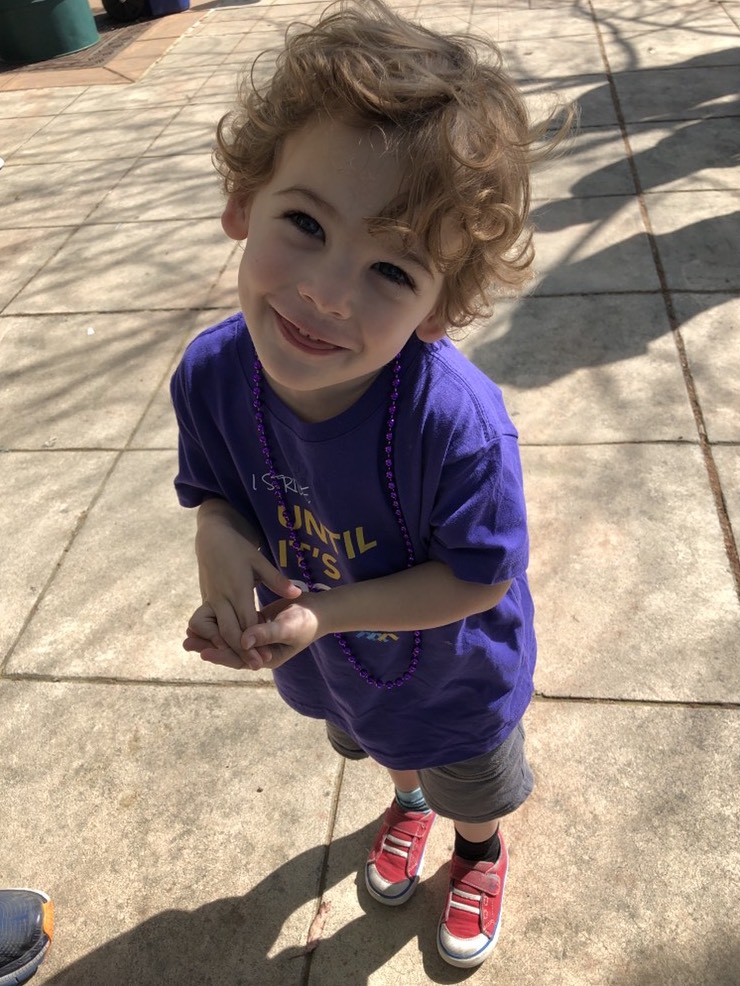 There was a time when we were worried that our son, Saul—one-and-a-half-year-old Saul—who’d spent probably four months out of his life in a hospital—had another intestinal blockage that would require hospitalization. Our breaths held, we worried. It wasn’t just the hospital, of course—though if you’ve ever tried to take a one-and-a-half-year-old anywhere, you can imagine the challenge that a hospital setting would entail—we worried that he’d need another surgery, we worried what another hospitalization meant for the progression of his cystic fibrosis, we worried about him catching an infection if he had to go to the hospital. You name it—the usual things we worried about during times like these or times late at night when the worrying thoughts creep in.
There was a time when we were worried that our son, Saul—one-and-a-half-year-old Saul—who’d spent probably four months out of his life in a hospital—had another intestinal blockage that would require hospitalization. Our breaths held, we worried. It wasn’t just the hospital, of course—though if you’ve ever tried to take a one-and-a-half-year-old anywhere, you can imagine the challenge that a hospital setting would entail—we worried that he’d need another surgery, we worried what another hospitalization meant for the progression of his cystic fibrosis, we worried about him catching an infection if he had to go to the hospital. You name it—the usual things we worried about during times like these or times late at night when the worrying thoughts creep in.
So when it became clear that he didn’t have a blockage, that we wouldn’t have to be admitted to the hospital after all (that time anyway) the relief I felt was similar to the man’s in the story. What I had was the same thing I had when I woke up that morning—three kids, a place to live (thank God), and the shadow of cystic fibrosis over our house. But when that shadow lifted for that moment, I could appreciate everything more because it was almost so much worse.
I know people who get tied up in knots over details. I wish I could say that I had been able to grow because of this experience or that I became wiser and learned how not to sweat the small stuff because my kid has a terminal disease, but I have always eschewed details for the bigger picture, so maybe I am in a good position to learn the lessons I have had to learn.
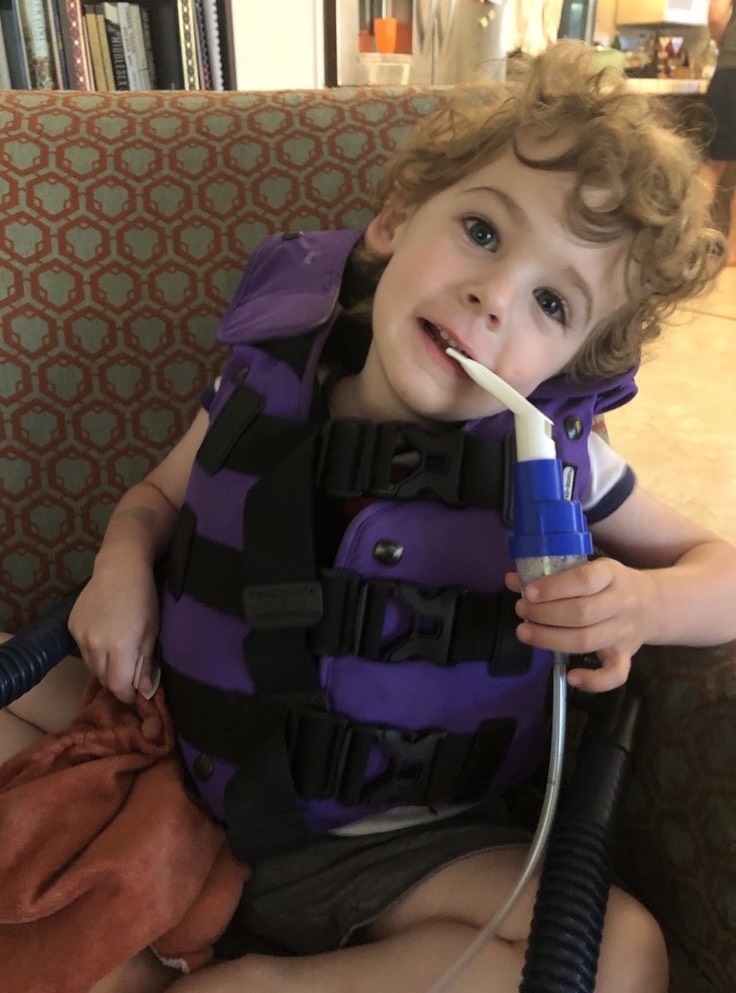 But when Saul was in the NICU, when we were learning that he had cystic fibrosis, when his pulmonologist, with his kind eyes but direct manner, conveyed to me a definitive “no,” after I offered, “Maybe it’s a mild case?” I found it difficult to find a way to think about things being worse. I thought about my guilt at having brought him into a world to suffer; I thought about the care he would need, the burden it would put on his brothers, my relationship with my husband, and selfishly, I thought of what it might do to my career. I was stuck in the weeds of self-pity and pity for Saul. The details would bring me down every time: the bare and raw facts of the disease, what to expect, what I would have to change about my own world-view.
But when Saul was in the NICU, when we were learning that he had cystic fibrosis, when his pulmonologist, with his kind eyes but direct manner, conveyed to me a definitive “no,” after I offered, “Maybe it’s a mild case?” I found it difficult to find a way to think about things being worse. I thought about my guilt at having brought him into a world to suffer; I thought about the care he would need, the burden it would put on his brothers, my relationship with my husband, and selfishly, I thought of what it might do to my career. I was stuck in the weeds of self-pity and pity for Saul. The details would bring me down every time: the bare and raw facts of the disease, what to expect, what I would have to change about my own world-view.
Now, of course, it could have been worse. It’s folly to think otherwise—to imagine that things are horrible and already at their worst is like asking to put the evil eye on a situation. That’s my cosmology. My other sons, soon tested for CF, could also have had it. Saul’s surgery could have not gone well, any number of things could have happened to make our situation worse.
But, at the time, I had a hard time seeing this—it felt like the bottom. Time, perspective, and the turning of the worst realities of this time into my own day to day truth—and finding the value in it—has changed the way I can approach my son’s disease. He’s a happy kid; there are amazing role models out there for him, like the late Claire Wineland, who can help him to manage his own gratitude and perspective better than I can.
We can do everything to bar various farm animals from entering our house, we can keep ourselves as safe and secure as we can to ward against intrusion of all kinds, but life will find a way of filling your “house,” small or large, with unwanted guests: disease, conflict, trauma, disaster.
So perhaps we have to imagine it being worse to be able to appreciate what we have. Gratitude is wonderful but hard to practice practically. I suppose the lesson is then that in those moments when your third kid— the one with cystic fibrosis—doesn’t need to go to the hospital or when you are experiencing a moment of peace and relative calm, take a moment to appreciate it. Because it could always be worse.
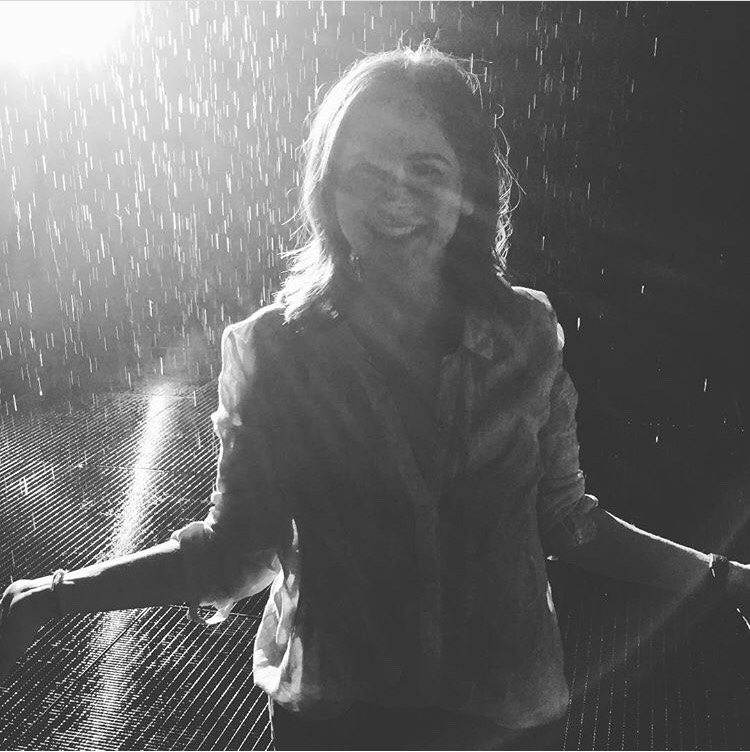 Jody Passanisi
Jody Passanisi
Jody is the Director of Middle School at Gideon Hausner Jewish Day School in Palo Alto, CA. She lives with her three children, her husband, and two cats. She volunteers for Crisis Text Line (741741) and is a cystic fibrosis advocate.




